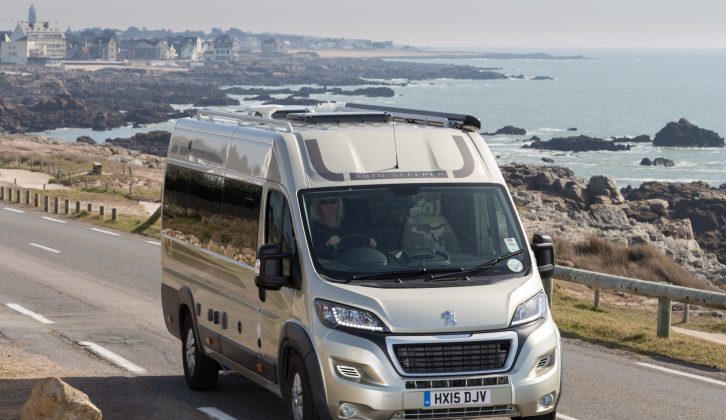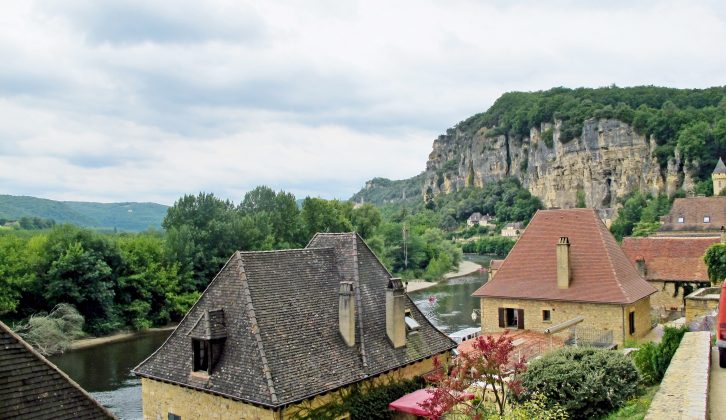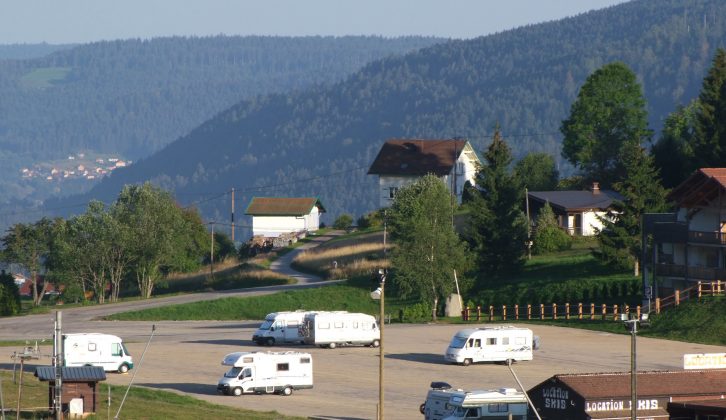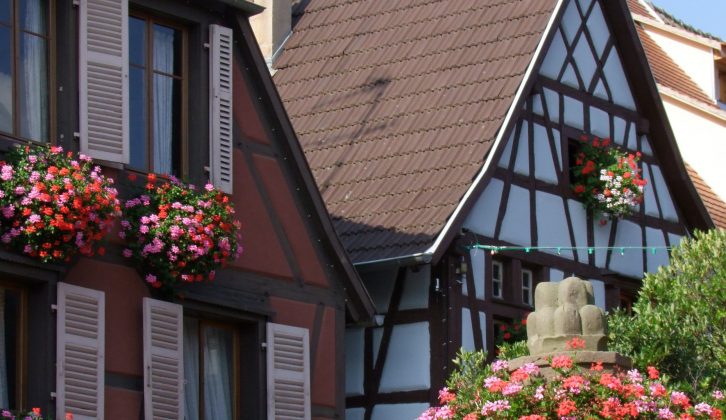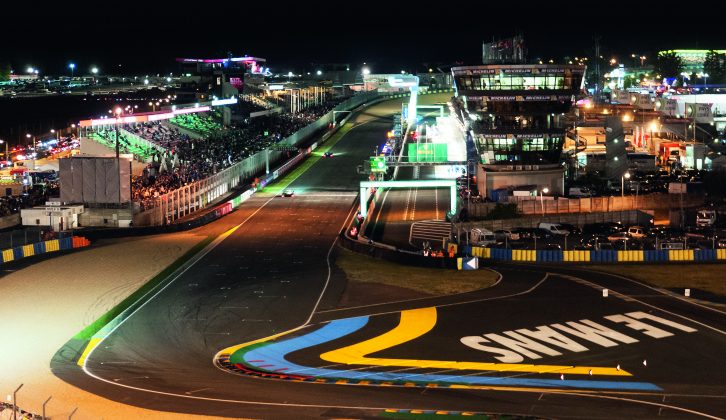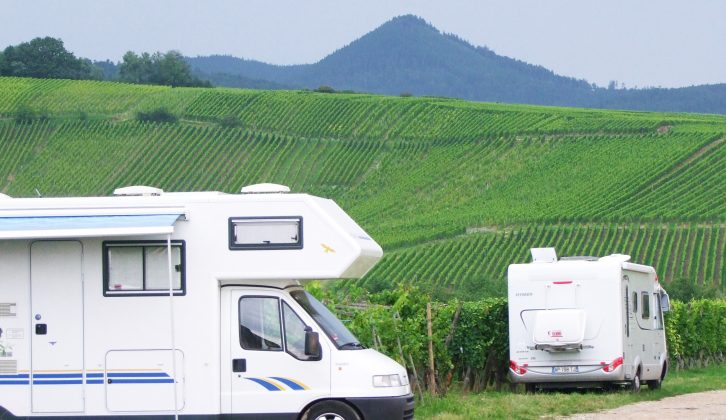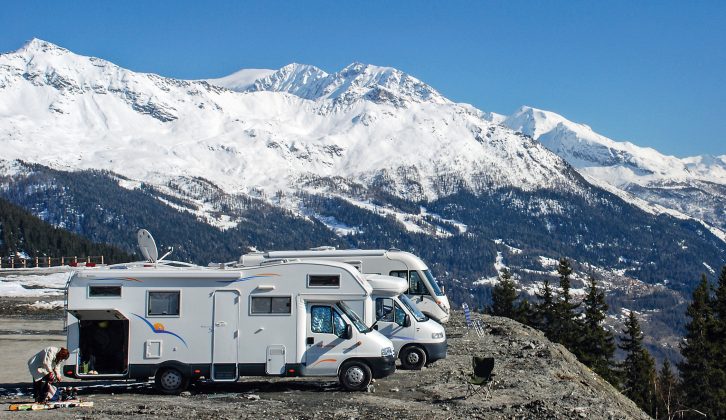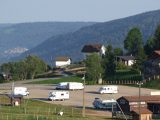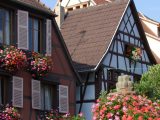France is one of the most motorhome friendly countries in Europe
Things To Do
There’s nothing more poignant than a visit to the war cemeteries and graves around the Battle of the Somme in Picardy. You’ll find major First World War memorials at Thiepval, Beaumont Hamel and Albert.
Visit Paris. It is one of those ‘must do’ capitals – and it’s a ‘can do’ capital with a motorhome, as there’s a campsite close to the city centre, just five minutes by bus from the Arc de Triomphe.
For sumptuous gardens and shockingly perfect chateaux, the Loire Valley is the place to go. Chenonceau, Blois and Chambord are some of the well-known biggies, but you’ll find plenty of smaller, private pads, open to the public, which are as equally pleasing to the eye.
To follow the sea, the Breton coastline offers something slightly Cornish in feel. You’ll find creeks, giant headlands, boulders and dozens of charming little whitewashed villages. And the food’s pretty good too!
For the quaintest of quaint villages and olde worlde half-timbered houses, all pastel painted and coloured with floral displays, the Alsace region in eastern France is a gem. With ancient cobbled streets, and a cuisine to die for (not to mention the wine), this is a winner.
When To Visit
When to take your motorhome holidays in France? It is such a large country and there’s so much to see that you’ll have plenty of things to do whenever you tour France. Here are a few highlights.
You’ll always find foodie festivals, spectacular temporary exhibitions and cultural displays at art galleries and museums across France, but the country offers a fabulous mix of world-class annual events.
January is Rallye Monte Carlo time. Choose between the modern, World Rally Championship version and, held straight afterwards, the historic version, when classic cars compete on the often tight and twisty roads. It’s the stuff of motorsport legend.
In February, look out for exotic creations made entirely from lemons (and other citrus fruits) in the colourful world of the Lemon Festival in Menton, on the Côte d’Azur.
The English are (now) welcome to the Joan of Arc Festival in Orléans in April, a celebration of the liberation of the city by the teenage fighter, who defeated the English during the Hundred Years War. There’s plenty of medieval atmosphere and charging knights on horseback.
The following month there’s something very different – get your autograph books out in May to improve your collection of star-studded signatures at the Cannes Film Festival, where there’s lots of glitz and glamour. Plus, in the Loire Valley, you’ve got until October to visit the International Garden Festival at Chaumont-sur-Loire. With a different theme each year, there’s plenty to inspire your own garden.
Come June, you can choose between two sporting greats – the French Tennis Open at Roland-Garros in Paris or the Le Mans 24-Hour Race near the city of Le Mans in the Pays de la Loire. Either way, you’ll find tests of endurance and speed.
In July, it is time for one of the Riviera’s biggest events. Get toe-tapping at the Nice Jazz Festival or find yourself clinging to the roadside listening to the whoosh of bicycles pass you by on the Tour de France. And don’t forget that Bastille Day is 14 July – a national holiday, you’ll find most places closed.
It is time for the grape harvest across the many winemaking regions of France during September and October. The whites usually come first, followed by the reds. And you’ll find many harvest celebrations, wine fairs and markets. Beaujolais Nouveau Day, a celebration of the arrival of weeks-old Beaujolais, is celebrated on the third Thursday of November, when there are over 100 different festivities in the region.
Plus, of course, between December and April it’s the French ski season in the various mountain regions of France, including the Alps, the Jura and the Pyrenees.
Getting There
You’ll find plenty of options across the English Channel with direct routes from the UK to several ports in northern France and, for certain routes, a choice of operators. In north east France, select between Dover-Calais, Dover-Dunkirk or Newhaven-Dieppe by ferry or, using the Eurotunnel, Folkestone to Coquelles (between Calais and Boulogne). Calais, Coquelles or Dunkirk routes are useful for reaching southern France (straight onto the A26 motorway), eastern France and Paris. Alternatively, use routes to Normandy and Brittany (from Portsmouth and Poole to Caen, St Malo, Cherbourg, Le Havre and Roscoff), all operated by Brittany Ferries, which are also useful for reaching western France, the Loire, Vendée and central France.
To save hours on the road to south west France (Aquitaine, Pyrenees and Languedoc-Roussillon), it’s worth considering the Brittany Ferries crossing from Portsmouth or Plymouth to Santander in Spain – the port is less than two hours from the French border.
